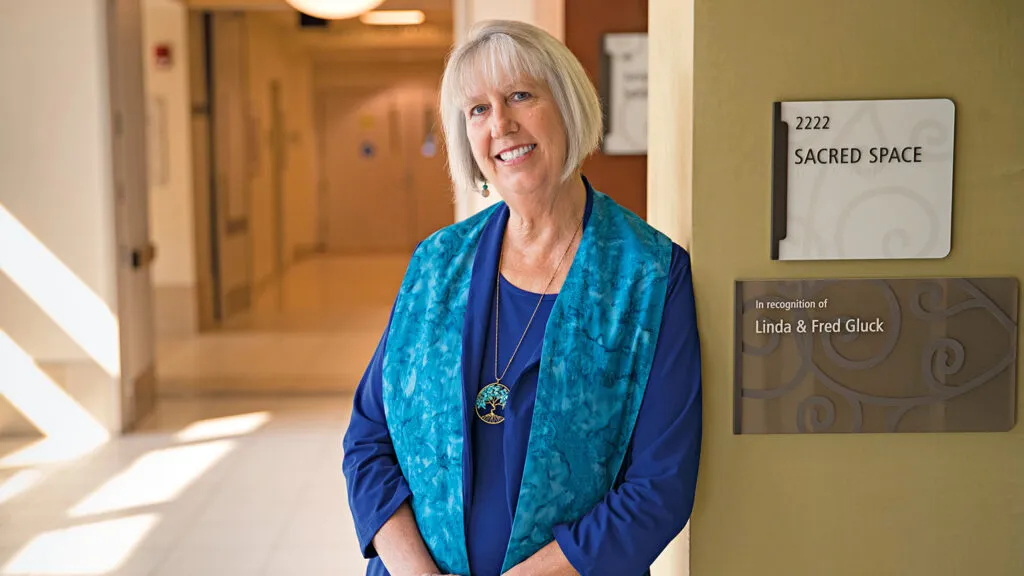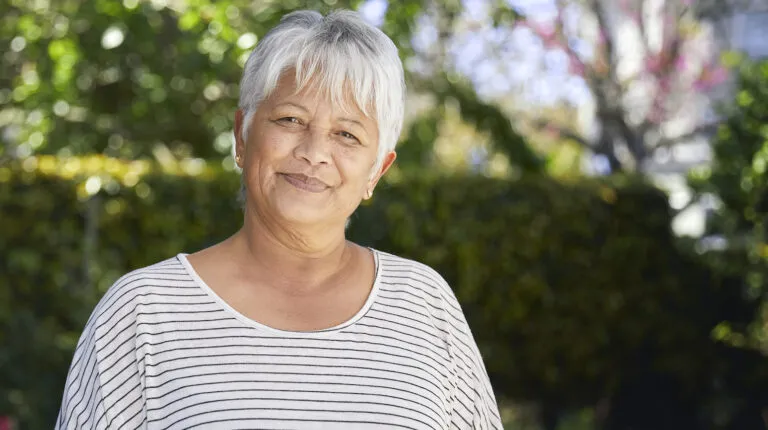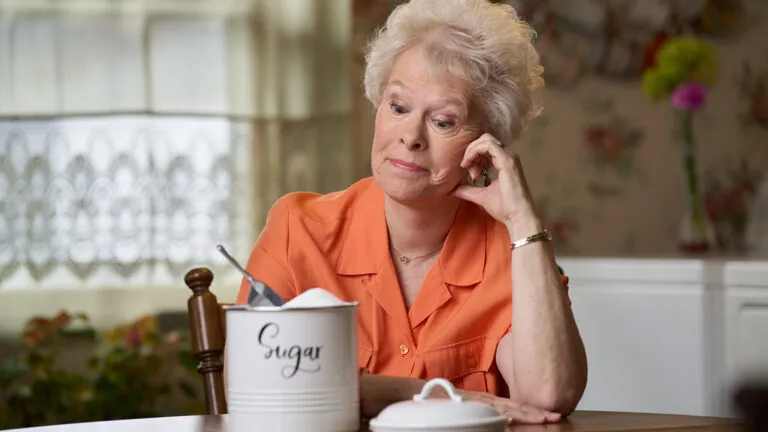One of my officers tapped me on the arm right after I got off the radio telling the precinct that we’d made a bust. “Sarge,” he said, nodding toward the squad car. “The girl says she knows you.” Yeah, I wanted to say. Right.
I’m in charge of the St. Petersburg, Florida, vice squad, and we’d just busted a drug deal in an alley off Fourth Street, a notorious neighborhood. I was focused on the dealer, not the prostitute we’d caught him selling a rock of crack cocaine to.
I glanced at her, huddled in the backseat of a squad car. Typical crack addict: pale and thin to the point of emaciation, with short, dirty hair. How did she know me? Had I arrested her before? The officer handed me her driver’s license. The young woman in the picture looked so different—long hair and big brown eyes—I checked the name. Melissa Collora. Age 21. I almost dropped the license. I did know her. When I was a kid, the Colloras lived right next door. This was the little girl I used to babysit.
I went over to the squad car. “Melissa? What are you doing?”
Her sunken brown eyes were glazed but unmistakable. “What do you think?” she said, then looked away.
“Is there anything I can do to help you?”
“If you can’t get me a rock, just leave me alone,” she snarled.
I didn’t ask the question I really wanted to ask. What happened, Melissa, to the girl I used to know?
I’m a man of faith. I try to see the best in people, as I know God does. That’s not easy with a job like mine. I’m a 15-year police veteran. The past seven years I’ve run the vice squad. I see the worst that people do to one another—and to themselves—and I deal with some truly hopeless cases. Cases so terrible and heartbreaking I can’t afford to let myself get emotionally involved. I couldn’t imagine that Melissa Collora was one of them.
I remembered being at the Colloras’ house on steamy summer days when I was 15 or so. Melissa would have been about three. Her brothers and I played football in the yard. Melissa would sit on the swing-set clutching her teddy bear, watching us with those big brown eyes. So sweet. So innocent.
I remembered her father too. All the boys on our block loved Mr. Collora, a big guy with a great sense of humor. He owned a gas station and an auto lot, and he’d let us kids play around in his jalopies. Then about the time Melissa was eight, Mr. Collora died. I went into the Army shortly after that. I hadn’t seen Melissa or her brothers in the 13 years since.
I called my mother as soon as I got home that night. “Guess who I arrested today,” I told her. “Melissa Collora.”
“That’s terrible, Tim,” she said. “I’d heard she was in trouble.”
Mom filled me in. Mrs. Collora remarried. Melissa’s step-father abused her. In 1993 her mother committed suicide. Melissa went to live with relatives outside New York City. That’s where she discovered crack and life on the street.
I hung up the phone, depressed. Not because it wasn’t a familiar story. It was. This time, though, I had actually known the girl before her life went wrong. That’s what really hurt.
The next time Melissa and I crossed paths, she was getting arrested on yet another prostitution charge. “You see her a lot?” I asked the arresting officer.
“Melissa? She practically owns the corner of Forty-eighth and Fourth. Even wrote her name in the cement to keep the other girls away.”
She had a black eye and bruises all over her arms. “Melissa, what can I do?” I asked, though hard experience told me not much. I was a vice cop, not some bleeding-heart social worker.
“I told you before,” she snapped. “Just leave me alone.”
Since age 18 Melissa was booked more than a dozen times for drug possession and prostitution. Sooner or later she’d rack up enough convictions to send her to state prison for a very long time.
I’d see her every week, either at the station house or walking the streets. She wouldn’t look me in the eye. Sometimes I ignored her. My cop instincts said she was never going to change. That’s what the streets do to you. I’d seen it a thousand times. The damage starts young. By the time they start taking drugs and selling their bodies, it’s too late. But then I’d think, How can I turn my back on this kid? Invariably, though, Melissa would tell me to get lost.
“That girl’s a lost cause,” the guys on the squad said. “Why do you keep trying?” But no matter how many times I told myself it was pointless, I kept picturing that wide-eyed little girl in her swing, who’d had her whole life ahead of her.
One day I gave a presentation about prostitution to a St. Petersburg civic group. One of the slides I used was a booking shot of Melissa. A woman in the audience asked who she was, and I told Melissa’s story.
The woman came up to me afterward along with a friend. “I’m Linda Cheney, from Praise Cathedral,” she said. “This is Tracy. We’re looking for a woman to sponsor for the Walter Hoving Home in New York, a recovery program for prostitutes. How about Melissa?”
“I don’t think she’s your girl,” I said. “Melissa, she doesn’t want to recover.”
Linda slipped me her card. “Call me if anything changes.”
“All right,” I said. “But I doubt it will.”
There I was again, the hard-nosed cop.
I stuck Linda’s card in my desk drawer. I probably would have forgotten about it, except for a few days later. My team cornered a prostitute and her client in a rubble-strewn lot off Forty-eighth Avenue. It was Melissa. I turned and walked away. I had a sick feeling in my stomach. Melissa was looking at hard time now. At least 10 years. She was barely in her 20s.
“She wants to talk to you,” one of my officers said.
I walked over slowly and leaned into the window of the squad car. Melissa was hunched over in the backseat, her hands cuffed behind her. I didn’t say anything. Just stood. What was there left to say?
She stared at her feet. “I think … ,” she began. She lifted her head. Those big brown eyes looked straight into mine. “I think I need help.”
My instincts said, don’t trust her. Crackheads use anybody and anything to get what they want. She was in deep and she knew it. She’d say anything. Drugs strip you of your soul. I thought about the first time we’d busted her. She told my guys she knew me. Why? She didn’t have to. Had that been a cry for help? That one part of her the streets hadn’t claimed? Was it enough? “I’ll see what I can do.”
Back at the precinct, I fished Linda Cheney’s card out of my desk and called her. “I think I found one for you,” I said. “I’ll take it from here,” she replied.
She called back the next day. “The Hoving Home will take her,” she said. “My church will cover the plane tickets and fees. All we need now is the judge’s approval.”
“I’ll talk to the prosecutor, but don’t get your hopes up,” I warned her. “You’ll have to convince the judge that Melissa wants to turn over a new leaf.”
“Tracy or I will testify,” Linda said. “We met with Melissa in jail this morning. She told us she’s accepted Jesus. She wants to start a new life. That’s why she asked you for help.”
Don’t kid yourself, lady, I wanted to say. But I kept my mouth shut. I would have to testify at Melissa’s trial. You don’t lie on the stand. I wasn’t going to say anything I didn’t believe, no matter what Melissa claimed. What if she was sincere, though? Linda and Tracy believed her, but they were church ladies. Turned out the prosecutor was on board. What about me? What did I believe? I wasn’t sure.
The judge was a real hardliner. He scowled at Melissa as the bailiff led her into the courtroom. He was ready to send her away right then.
“Your Honor,” the prosecutor began, “the state recommends that Melissa Collora’s sentence be commuted to treatment at the Walter Hoving Home in New York. A church group is willing to sponsor the treatment.”
The judge looked incredulous. Tracy took the stand. She spoke of Melissa’s faith conversion and said she believed it was sincere. “Who are we to know what is truly in a person’s heart?” she asked.
The judge looked at her. “If I had a nickel for everybody who comes into my court and says they’ve changed their lives, I’d be a rich man.”
I was next. The judge fixed me with his sharp eyes. “Your Honor,” I said, “if I had a nickel for everyone who tells me that they’ve changed their lives, I’d be a rich man too.”
“So what makes this young woman different?” he countered.
“It’s my understanding,” I continued, “that Melissa Collora has had a transformation. I believe faith can change lives. I believe it can change Melissa’s.”
There was dead silence in the courtroom. Finally the judge spoke.
“I’ve never seen anything like this,” he said. “A veteran police supervisor testifying on behalf of a prostitute?” He turned to Melissa. “Young lady, I was going to sentence you to ten years. I commute your sentence to treatment at the Walter Hoving Home. A lot of people are sticking their necks out for you—me included. Do not violate this trust. Don’t blow this chance. It’s your last one.”
He banged his gavel and Melissa was led away.
Melissa called me from Linda’s cell phone on the way to the Hoving Home. “Tim, I just want to thank you … ,” she started to say. Then the signal faded. I didn’t need to hear anymore. What I did for her wasn’t much, but I think it was the best thing I could have done. Even a vice cop can’t go through life letting it harden him. Maybe that’s where I’d changed. I believed in her.
It’s up to Melissa now. And to the One who made sure our paths kept intersecting until we both saw what he did—a young woman with a whole new life ahead of her, a life in him.
This story first appeared in the July 2004 issue of Guideposts magazine.






